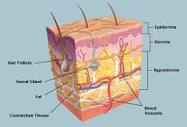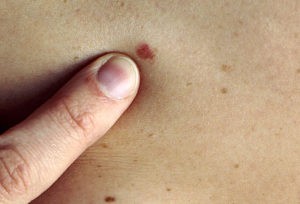
Diagnosed with Cancer? Your two greatest challenges are understanding cancer and understanding possible side effects from chemo and radiation. Knowledge is Power!
Learn about conventional, complementary, and integrative therapies.
Dealing with treatment side effects? Learn about evidence-based therapies to alleviate your symptoms.
Click the orange button to the right to learn more.
- You are here:
- Home »
- Blog »
- Skin Cancer »
- Melanoma- Integrative – Enhance Outcomes
Melanoma- Integrative – Enhance Outcomes

Integrative Therapy for Malignant Melanoma- Enhance the Efficacy of Conventional Chemotherapy While Reducing Toxicity
Depending on your stage at diagnosis, the outlook for malignant melanoma (mel) is not hopeful, at least seen through conventional oncology’s eyes.
According to research “The 10-year survival rate for patients with metastatic melanoma is less than 10%. Although surgery and radiation therapy have a role in the treatment of metastatic disease, systemic therapy is the mainstay of treatment for most patients.
Single-agent chemotherapy (Dacarbazine) is well tolerated but is associated with response rates of only 5% to 20%. Combination chemotherapy and biochemotherapy may improve objective response rates but do not extend survival and are associated with greater toxicity. Immunotherapeutic approaches such as high-dose interleukin-2 are associated with durable responses in a small percentage of patients.
Consider complimentary and integrative melanoma therapies. That is to say, those therapies shown to cause apoptosis to melanoma and/or enhance the efficacy of conventional therapies.
I have lived with an incurable blood cancer called multiple myeloma for more than 2o years. I am pointing this out because conventional therapies did little for me. I have lived in complete remission from my cancer by living an evidence-based, non-toxic, non-conventional, anti-myeloma lifestyle through nutrition, supplementation, bone health and lifestyle therapies.
I think patients with malignant melanoma should consider thinking outside the conventional oncology box. Curcumin is a good example of a well-researched anti-oxidant that integrates with dacarbazine to enhance it’s efficacy against malignant melanoma.
To Learn More About Melanoma- click now
To learn more about integrative, complimentary and other forms of evidence-based, non-conventional melanoma therapies, scroll down the page, post a question or comment and I will reply to you ASAP.
Thank you,
David Emerson
- Cancer Survivor
- Cancer Coach
- Director PeopleBeatingCancer
Recommended Reading:
- Non-Melanoma Skin Cancer Risk Increases From Radiation
- Preventing Non-Melanoma Skin Cancer Relapse
- How to Identify Skin Cancer in 5 Steps
- Skin Cancer, Vitamin D3 and Sunlight
Curcumin analog DM-1 in monotherapy or combinatory treatment with dacarbazine as a strategy to inhibit in vivo melanoma progression.
“Malignant (mel) is a highly aggressive form of skin cancer with a high mortality rate if not discovered in early stages. Although a limited number of treatment options for mel currently exist, patients with a more aggressive form of this cancer frequently decline treatment.
DM-1 is a sodium phenolate and curcumin analog with proven anticancer, anti-proliferative and anti-metastatic properties. In this paper, the DM-1 compound showed in vivo antitumor activity alone or in combination with chemotherapeutic DTIC in B16F10 melanoma-bearing mice.
Beneficial effects such as mel tumor burden reduction with pyknotic nuclei, decreased nuclei/cytoplasmic ratio and nuclear degradation occurred after DM-1 treatment. No toxicological changes were observed in the liver, kidneys, spleen and lungs after DM-1 monotherapy or DTIC combined therapy. DTIC+DM-1 treatment induced the recovery of anemia arising from melanoma and immunomodulation. Both DM-1 treatment alone and in combination with DTIC induced apoptosis with the cleavage of caspase-3, -8 and -9.
Furthermore, melanoma tumors treated with DM-1 showed a preferential apoptotic intrinsic pathway by decreasing Bcl-2/Bax ratio. Considering the chemoresistance exhibited by mel towards conventional chemotherapy drugs, DM-1 compound in monotherapy or in combination therapy provides a promising improvement in melanoma treatment with a reduction of side effects.”
Resveratrol induces apoptosis in human melanoma cell through negatively regulating Erk/PKM2/Bcl-2 axis
“Resveratrol is known as a natural phytoalexin found in grapes and wine, which has significant antitumor activity under in vitro and in vivo conditions. In recent years, great progress has been made in understanding the underlying mechanisms of resveratrol in inducing cellular apoptosis of melanoma cells. Our previous study has shown that the apoptosis regulation of resveratrol in mel cells was independent of activation of classical apoptosis-related protein p53…
Results- In the present study, we found that resveratrol dramatically inhibited melanoma cell proliferation and induced cell apoptosis through upregulation of p53 in a concentration-dependent manner. Conversely, p53 downregulation by short hairpin RNA couldn’t rescue resveratrol-induced cell proliferation inhibition or apoptosis enlargement. Additionally, we found that resveratrol downregulated antiapoptotic protein Bcl-2 and activated Bax in the protein levels by promoting Bcl-2 degradation and cytochrome c release. Moreover, we discovered that PKM2, had a key role in cell apoptosis triggered by resveratrol through interacting with Bcl-2. Based on these results, we overexpressed PKM2 in melanoma cells and found that this prevented resveratrol-induced apoptosis by stabilizing the protein level of Bcl-2.
Conclusion- Taken together, our results provided a novel mechanism accounting for the apoptosis induction of resveratrol in melanoma cells and suggested that downregulating Erk/PKM2/Bcl-2 axis appears to be a new approach for the prevention or treatment of melanoma…”
Nutritional Interventions for Patients with Melanoma: From Prevention to Therapy—An Update
“Melanoma is an aggressive skin cancer, whose incidence rates have increased over the past few decades. Risk factors for melanoma are both intrinsic (genetic and familiar predisposition) and extrinsic (environment, including sun exposure, and lifestyle).
The recent advent of targeted and immune-based therapies has revolutionized the treatment of melanoma, and research is focusing on strategies to optimize them. Obesity is an established risk factor for several cancer types, but its possible role in the etiology of melanoma is controversial. Body mass index, body surface area, and height have been related to the risk for cutaneous melanoma, although an ‘obesity paradox’ has been described too.
Increasing evidence suggests the role of nutritional factors in the prevention and management of melanoma. Several studies have demonstrated the impact of dietary attitudes, specific foods, and nutrients both on the risk for melanoma and on the progression of the disease, via the effects on the oncological treatments. The aim of this narrative review was to summarize the main literature results regarding the preventive and therapeutic role of nutritional schemes, specific foods, and nutrients on melanoma incidence and progression.”


